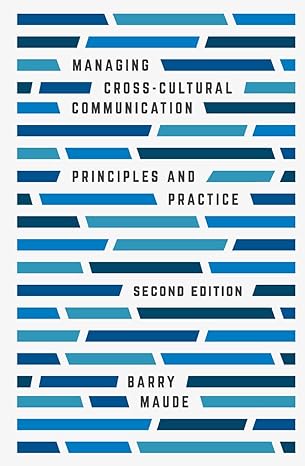Not all conflict is destructive. In multicultural teams conflict can have positive results by producing decisions and
Question:
Not all conflict is destructive. In multicultural teams conflict can have positive results by producing decisions and ideas for action of a quality superior to those produced without conflict. Task-related conflict, for instance, often leads to a deeper understanding of the issues and problems surrounding a project, and to an exchange of views and information that enable effective decisions to be made.
When Asian members of an international project team were criticized by European members for consistently failing to observe project deadlines, the Asians responded by pointing out that tight deadlines on the project usually led to poor work, and they gave numerous examples to prove their point.
The two sides agreed that a meeting should be held on the following day to discuss the issue. During the meeting each group in turn explained its point of view while the other group listened. By the end of the meeting a compromise had been reached.
Deadlines would stay, but there would be fewer of them.
New job allocations A few weeks later, the project manager decided to reallocate roles and responsibilities in the team, but he was unsuccessful. In the weekly progress meeting he presented several options for the reallocation but the team rejected all his proposals as unworkable and/or unfair.
Consequently the manager decided to take another approach. He asked the team itself to solve the problem.
A few days later, Team members called a meeting and two hours later had worked out new job allocations that were accepted by everybody.
As the example shows, conflict in a multicultural team that arises from a particular proposal or decision can sometimes be resolved by the simple device of inviting the team itself to make the decision.
Step by Step Answer:

Managing Cross Cultural Communication Principles And Practice
ISBN: 978-1137507464
2nd Edition
Authors: Barry Maude





